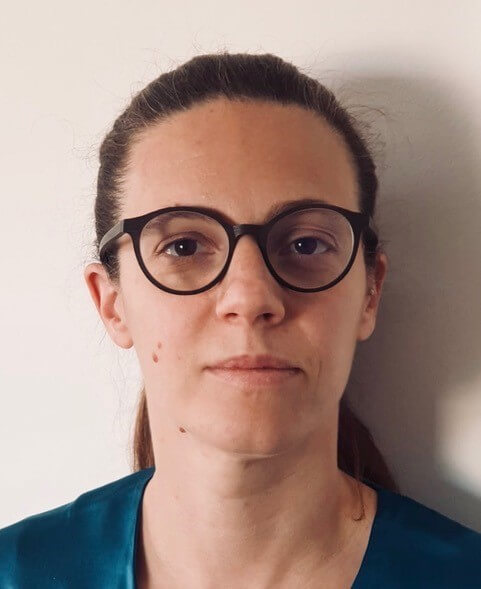
As the pandemic threatens the survival of many financial institutions, the temptation to trade client well-being for the financial health of the institution is ever present. While profit maximization and predatory lending behaviors might lead to bigger market shares and profits in the short run, they will ultimately destroy value in the long run. Even more so during these challenging times, financial institutions should make a conscious choice to put client protection at the center of their response by taking a long-term view that will ensure future customer loyalty and a faster recovery.
Just as a board of directors looks out for shareholders, at Maha we believe it is our obligation to look out for the interests of the clients. The process of Smart Campaign certification (we are now proud to be Smart certified) has encouraged every staff member across Maha to champion consumer protection so that it becomes instinctive for us when making decisions or interacting with clients.
The current situation in Myanmar has been a test of this approach. We are an agri-focused institution; 90 percent of our clients are smallholder farmers. Last spring, we wrote about how we had to adapt to regulatory and government directives during the pandemic’s early stages. Here we present several measures we’ve taken over the last few months to keep the well-being of our clients and the organization at the center of our decision-making process.
Cash Discount
One of the first measures we took was to offer a cash discount to customers. This achieved a two-fold purpose of not only encouraging repayments but also of providing financial support to our clients during these difficult times. This, at a time when many lending institutions were slowing down disbursements, was received positively by our clients as there were no strings attached. Moreover, we maintained our loan amount, which is the second highest in the country for long-term customers. This served as a source of relief and allowed our farmers to continue with their cropping cycle as usual.
Fair and Respectful Treatment of Clients
This principle became our North Star as we have seen delinquency go up and the need to maintain optimal collections to continue operations also becomes paramount. To ensure that we all adhere to our code of ethics, we undertook additional modules of training with specific guidelines on client interaction during the pandemic. This involved awareness of verbal and non-verbal cues that may be perceived as pressure to repay by our clients.
However, this alone was not enough. We also had to make sure that we were not incentivizing aggressive collections in any way. We addressed this by altering our incentive scheme to place a greater emphasis on preventing over-indebtedness and keeping our portfolio healthy. We also modified the incentive scheme eligibility criteria by increasing the portfolio quality threshold so that it reflects the reality of increased delinquency.
Maha made sure it was not incentivizing aggressive collections in any way.
Finally, we have put together a special delinquency management process with a designated task force to address the dynamic situation created by COVID-19. Our efforts in this direction were further affirmed by the Financial Regulatory Department (FRD), our regulator has issued a directive (No. AA – 1/6 [785/2020] dated 13 October 2020) and guidelines to ensure that institutions do not engage in forced collections. As a customer-centric, triple-bottom-line institution, we welcome these measures and are committed to finding solutions to address the needs of our clients during these challenging times.
Customer-Centricity
Our customer-centric approach during this pandemic has taken a two-fold approach of establishing a strong and effective feedback loop with clients, coupled with education on pressing issues. Soon after the onset of the pandemic, we conducted a client satisfaction survey which was followed by a COVID-19 impact survey, both of which allowed us to stay attuned to the evolving circumstances and needs of our clients.
We addressed a variety of concerns from income to food security and mental health. We learned that clients expressed greater concern about the economic impact of the crisis compared to health issues, and some began to eat less to save more to cope with the uncertainty. These surveys have provided us with actionable intelligence to ramp up digital services to overcome movement restrictions, provide faster turnaround times, and reschedule where applicable. We are now working on rescheduling on a case-by-case basis and are about to launch cashless repayments using mobile money agents.
Our second approach, which included education, was linked to a growing concern about multiple lending and over-indebtedness. The inclination to borrow as much as possible in times of uncertainty is hardly a surprising phenomenon when those we serve are unlikely to have savings that they can rely on. Through a combination of SMS alerts and pamphlets, we have educated our clients on the dangers of over-indebtedness and have given them advice on how they can optimally manage their finances.
Surveys have provided us with actionable intelligence to ramp up digital services to overcome movement restrictions, provide faster turnaround times, and reschedule where applicable.
Finally, we undertook a COVID-19 awareness campaign to help clients protect themselves, be apprised of symptoms they should look out for, and be informed by guidelines on how to proceed in case of a suspected infection. Through a combination of feedback and education, our aim has been not only to protect our clients, but to empower them to make the right decisions that will allow that to preserve their physical and financial health until the end of the crisis.
A medley of these measures has allowed us to stay true to our mission to create a long-term sustainable impact on the lives of our rural farming communities.












